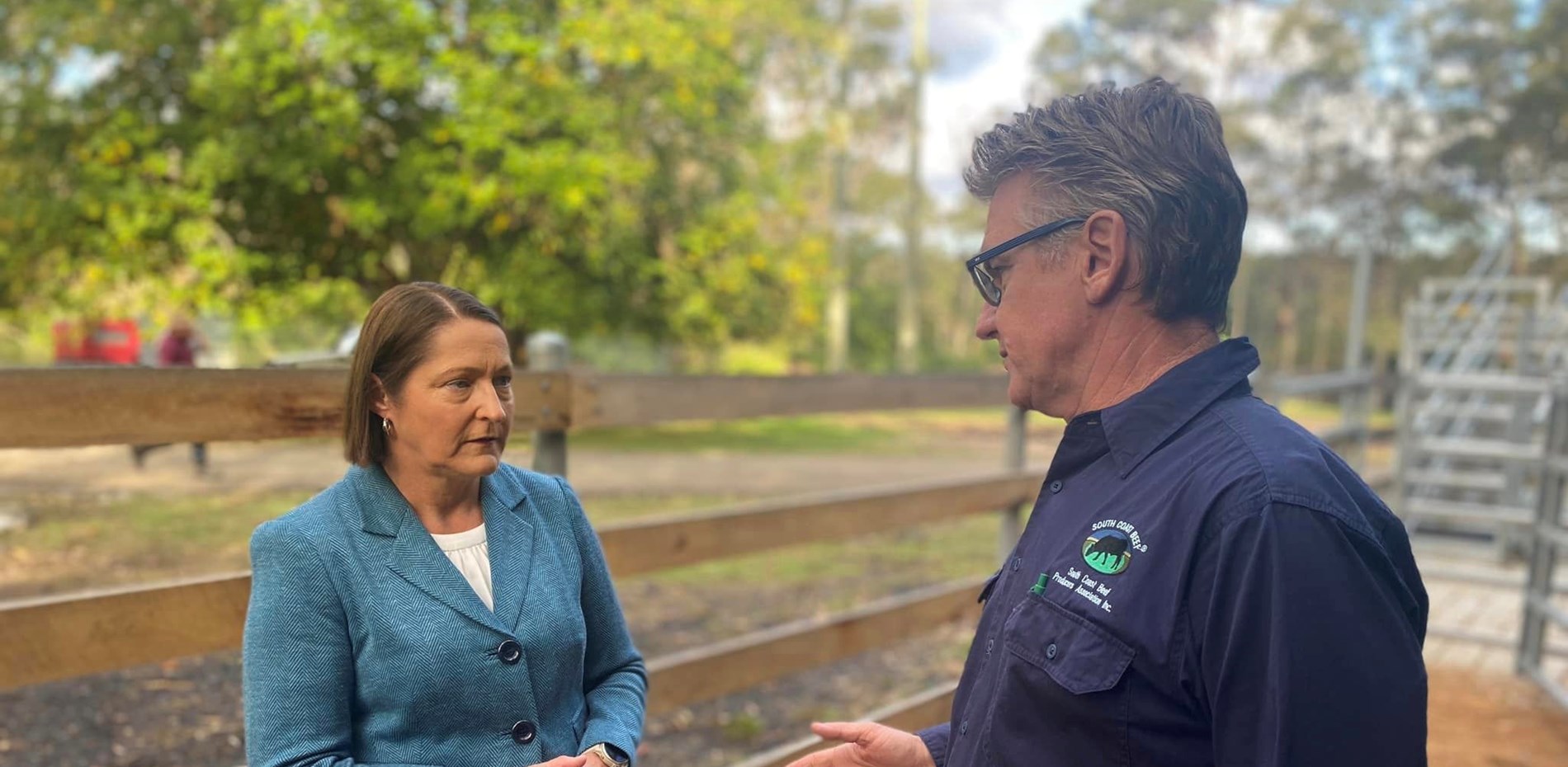Mrs PHILLIPS (Gilmore) (11:06): Growing up on a dairy farm, and through the decades, it's fair to say that I've seen a lot of change and I've seen local farmers adapt to much change over this time.
There have been huge hurdles over recent years on the New South Wales South Coast: disaster after disaster, drought, the Black Summer bushfires, and multiple floods and storms. Every natural disaster hurdle has been thrown at our farmers, but one of the things that has really struck me is how much farmers have modernised and adapted to the times. In my conversations with farmers it's been clear how far ahead of government they are in recognising the impact of our changing climate and the need to adapt for the future.
Take dairy farmer Rob from Narrawilly Farm and Croobyar Farm at Milton, which has been a dairy farm for more than 160 years. Over the past 30 years, farmer Rob has been busy regenerating the land by planting more than 1,000 trees each year, rehabilitating rainforest and creating wetland areas. Farmer Rob says:
We are custodians for a short period of time and I want to leave the farm in a better condition than how I received it.
Farmer Rob is not alone. We know that 94 per cent of farmers are actively undertaking natural resource management, including tree planting, protecting waterways and destocking during dry periods to maintain ground cover.
Further north in Kiama, one cannot help but be struck by the story of the Pines, established as a dairy farm in 1854. The Pines is a family-run microdairy run by Kel and Mahlah Grey. They manage all factors of farming themselves using organic, biodynamic, holistic and regenerative farming methods. Using minimal processing with their small and lovingly cared for herd, the Pines make a range of regenerative dairy products, including award-winning cheeses named after each cow, yoghurt, milk and a range of artisan gelato. The Pines places huge emphasis on sustainability and enhancing the precious ecosystem. The wellbeing of animals and land is at the forefront of everything, and regenerative farming practices ensure nothing from the farm goes to waste.
Yes, farming has changed, but so too have the opportunities from adapting to climate change. These farmers and many like them are ahead of the game because of the decade where we had a government that did not care about climate change, did nothing to support farmers to adapt and stuck their heads in the sand about what this means for the future.
Agriculture is hugely important in Gilmore. Well over $140 million worth of agricultural production occurs across the Gilmore region each year, mainly from our renowned dairy and cattle industries. More than 1,200 workers are directly employed in the agricultural sector, and they depend on a secure and prosperous sector for their livelihoods. I welcome the $302 million investment in sustainable agriculture that the Albanese Labor government is delivering through the May budget. It's great to see that the government is also rebuilding the climate capability of ABARES, which was neglected by the former government for 10 years. Our farmers increasingly depend on their sustainability credentials to be able to access valuable overseas markets, including through free trade agreements. Sustainability credentials demonstrate trust in them as providers of high-quality, safe and sustainable food and fibre products.
My questions to the minister are: Can the minister explain why it is important for the government to work with industry to manage these challenges by delivering more sustainable and climate-smart agriculture and to support the transition to net zero emissions? Can the minister also provide an update on the announcement in the budget to provide $302 million through the Natural Heritage Trust for new sustainable agriculture programs?



